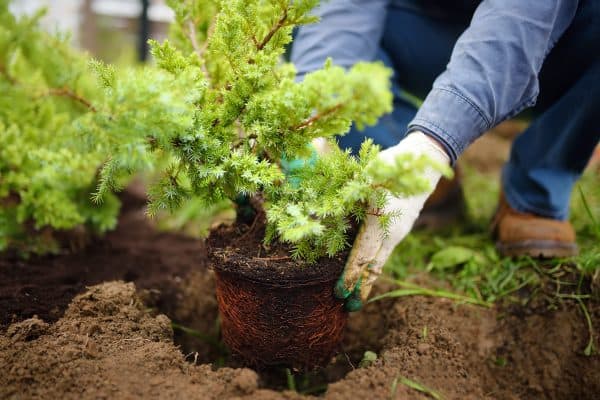Bermuda grass is a common grass used for lawns in homes and offices. Tending them requires techniques; else, they might not grow adequately. If you notice your Bermuda grass is not growing vertically, here are the reasons, according to landscape experts.
Your Bermuda grass is not growing vertically primarily because it is not in a suitable environment that would enable its proper growth. Other factors might include:
- Dry ground
- Excessive mowing
- Acidic soil
- Unfertilized soil
- Compacted topsoil
- Unconducive weather
- Shades
Which type of environment does the Bermuda grass need? What are the appropriate solutions to this problem? These questions will be answered in this post, so sit back and continue reading.
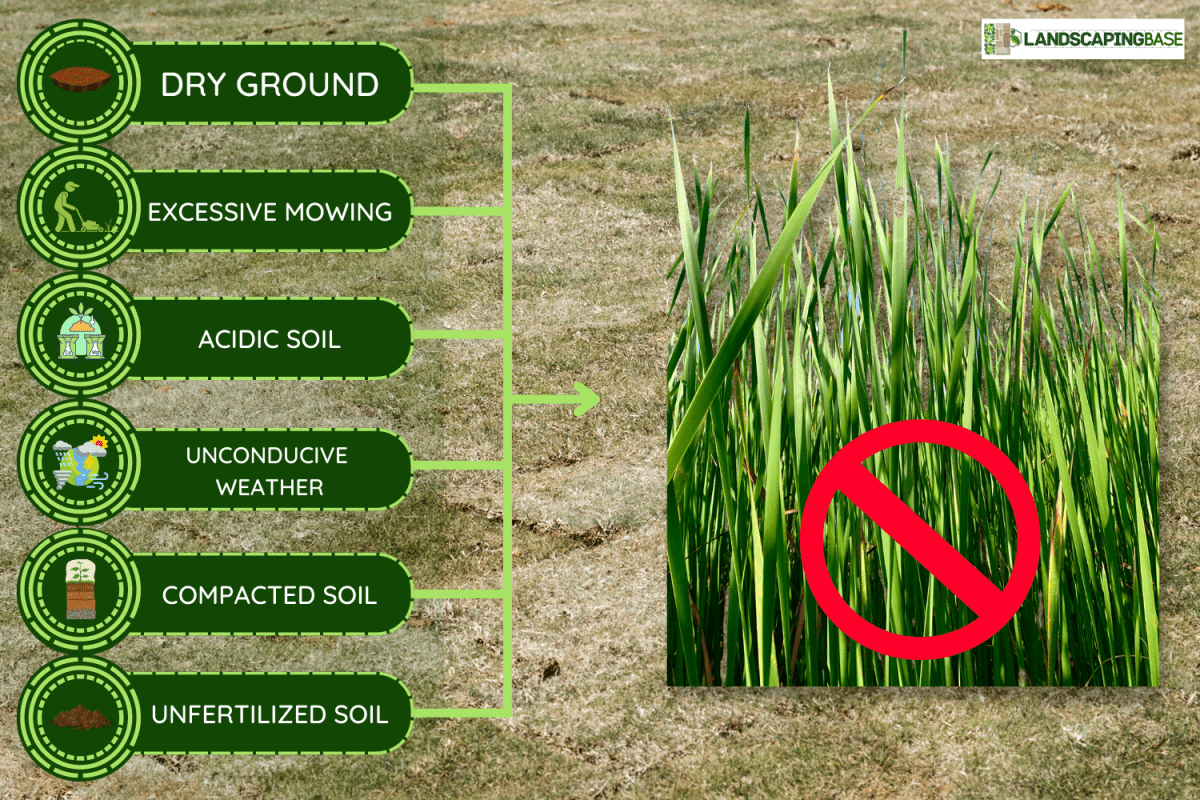
Bermuda Grass [ Background and Uses]

Bermuda grass, also called Cynodon dactylon, is a perennial type of grass with flat and short leaves, usually attaining heights between 4 and 16 inches. Owing to their extensive stolons and rhizomes, they form a dense lawn.
These plants, originally found in the Mediterranean region, are now grown as pasture grasses, lawns, and greens worldwide. It is because they are not only durable but are also resistant to drought and tolerant to heavy grazing. They grow rapidly across various soils and areas, recovering quickly from disease and tear.
These advantages imply that you can utilize Bermuda grass for whatever purpose you grow them because they easily outcompete most weeds for nutrients in the soil. The drawback is that they are considered invasive species and might spread in unwanted places.
Why Is My Bermuda Grass Not Growing Vertically?
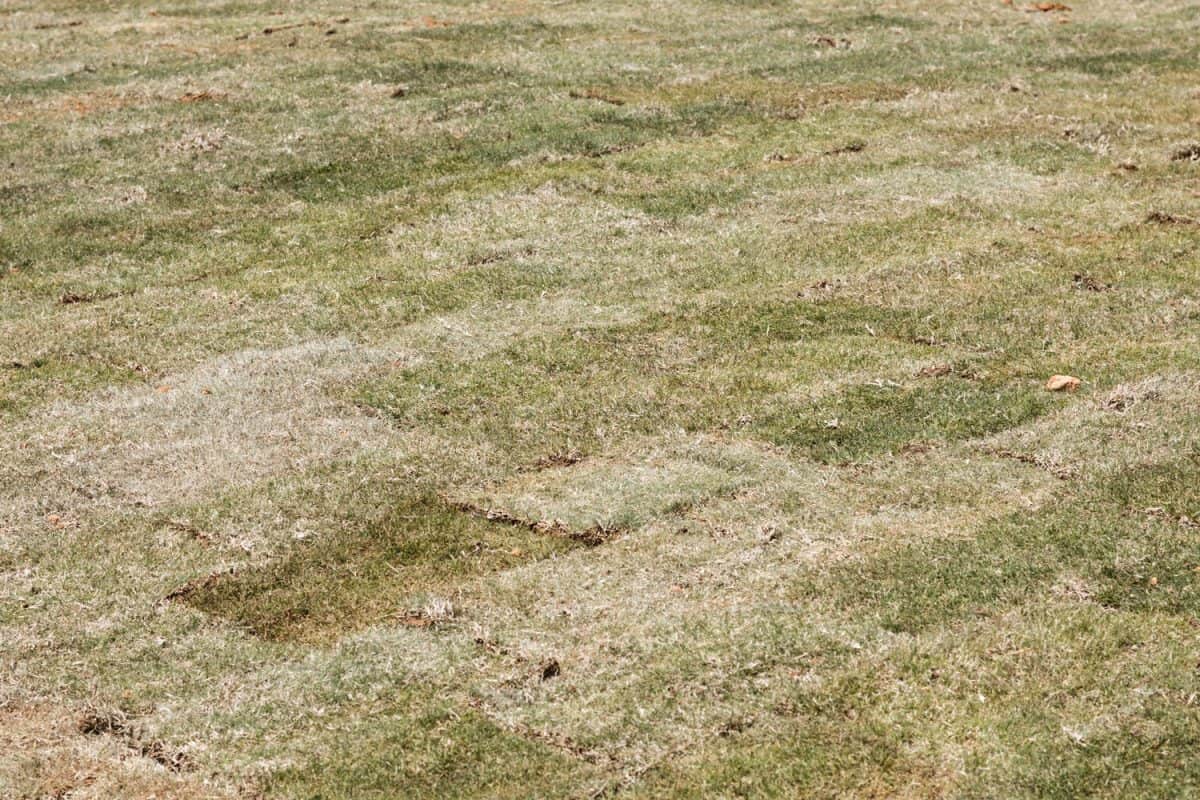
Your Bermuda grass is not growing vertically, probably because it is not cultivated in the right environment, which would facilitate its growth. Here are some factors that may inhibit the growth of your Bermuda grass.
Dry Ground
It is no news that Bermuda grasses are very resistant to droughts. However, this does not mean that they do not need water.
Because, like every plant, they require soils filled with water. To solve this problem, you should water the plants and the ground properly.
Frequent Mowing
Consistently mowing your lawn can prevent your Bermuda grass from growing vertically. Of course, there are many reasons why you should mow your lawn, for instance, to make it thicker, and especially for the health of your lawn.
But doing it too frequently can also affect the growth of your Bermuda. What you need to do is to mow less frequently to allow its proper growth.
Acidic Soil
Acidic soils are bad for the growth of any plant because they inhibit proper growth. A pH test to measure the level of acidity or alkalinity of the soil may be necessary.
Unfertilized Soil
Because Bermuda grasses grow and cover a large expanse of land quickly, they draw many nutrients out of the soil. As they continue to grow, the nutrients in the soil get depleted.
When the nutrients in the soil are not replenished through fertilization, growth may be inhibited.
Compacted Top Soil
Plants need nutrients and water from the soil. This can only happen if the topsoil is aerated since compacted soil makes it hard for plants to absorb.
Unconducive Weather Conditions
Bermuda grasses grow better in warm conditions. During winter, when temperatures drop, Bermuda grasses stop growing.
Shades
All plants, including Bermuda grasses, need sunlight to grow. If your Bermuda grass is planted under a shade, it is deprived of sufficient sunlight.
How Do I Make Bermuda Grass Thicker?
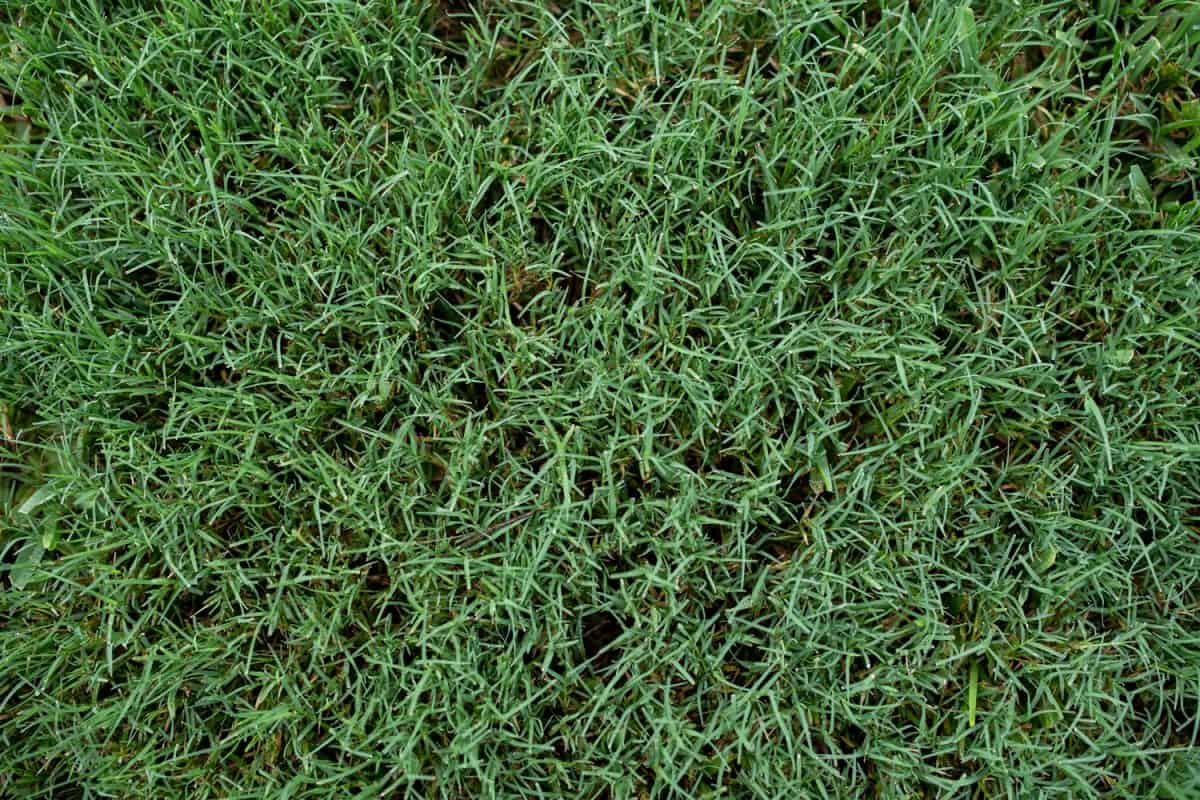
Thick Bermuda grasses are considered attractive and desirable. Most people dislike their Bermuda thin because it is considered of poor quality.
The good news is that it is possible to make Bermuda grasses thicker. Here are a few measures to make your Bermuda grass thicker.
Control Growth of Weeds
Weeds are plants that grow in places where they are unwanted. When these plants begin to grow in such places, they compete for water, nutrients, and oxygen, thus limiting the growth of the vegetation.
To ensure that your Bermuda grass grows thicker, you need to control the growth of weeds. You can use novel methods like weed chemicals or just go the classical way and pluck out the weeds by hand.
Control Soil Acidity
To ensure that your Bermuda grasses grow thicker, you would need to control the pH of your soil. The alkalinity or the acidity of soil can affect the growth of plants.
Although Bermuda grasses are known to be more resistant to alkalinity but weak against the soil's acidity, it is best to keep the pH balanced for optimum growth.
To treat the acidity, you can add lime to the soil. To control the alkalinity, you can add sulfur to the soil. Bermuda grasses grow very well when the soil pH is between 6 and 7.
Provide Adequate Water
Although Bermuda grasses are drought-resistant, they still need sufficient water, just like any other vegetation. There should be an adequate water supply.
Switching on your sprinkler for 35 minutes on the lawn is an effective way to do this. You should avoid watering the soil in the afternoon as evaporation is very rapid at this time.
Because the plants need sunlight just as it needs water, watering your Bermuda in the morning is an effective option.
Aerate The Soil
Plants need to be able to retrieve water and nutrients from the soil. If the soil is too hard, the growth of your Bermuda grasses may be affected and appear thin rather than thick.
For this reason, the soil must be aerated so that it loosens up to allow oxygen, nutrients, and water to access the foremost part of your soil, where your Bermuda can retrieve it.
The best time to aerate your soil is in the spring (between March and April) of every year.
Fertilize The Soil
In the spring, you should fertilize your soil immediately after aeration. This is because aeration allows the nutrients from fertilizers to easily enter the soil.
You can also fertilize your soil in the fall to increase the growth of your Bermuda grass. Ensure to use fertilizers rich in nitrogen.
Overseed The Soil
A thicker lawn means that you are trying to avoid patches or spaces between the soil. What other way can you achieve this but by supplying several seeds?
Spring is the best time to cultivate your Bermuda grass, and it is the right time to overseed your soil.
Overseed your soil and mow it within the following two weeks to reduce the competitive advantage of older plants and protect the new seedling.
Mow The Grasses Appropriately at The Right Time
For thicker grasses, mow them appropriately and at the right time. Mow your Bermuda grasses at the height of 2cm to encourage horizontal growth and thicker lawns.
You should also mow your Bermuda just after the winter season to get rid of dead grasses and allow the growth of new grasses.
How Tall Should Bermuda Grass Be?
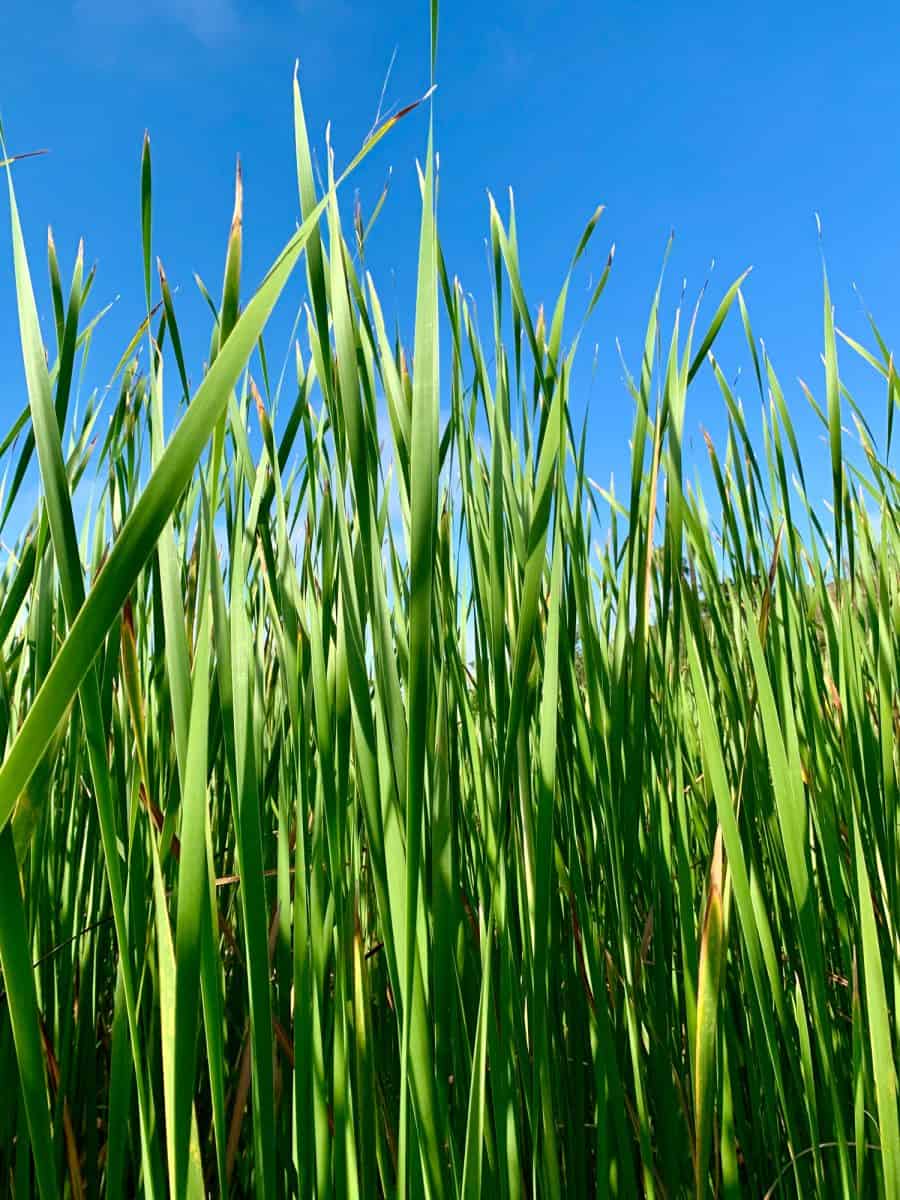
Bermuda grasses can grow very high, with an average height of 4 to 16 inches. However, it is expected that, by frequent mowing, Bermuda grass should be trimmed to a lower level of 1 to 2 inches.
Top dressing is the application of different materials over the surface of your plant. Top dressing is becoming a common practice because of its several benefits, such as drainage improvement, moisture retention, grass protection, soil constitution improvement, and the like.
How Can You Encourage Bermuda To Spread?
In certain situations, you may want your Bermuda grasses to spread across a particular area. Here are some measures to encourage its spread.
- Plant Bermuda grasses in the late spring.
- Consistently water the lawn.
- Ensure sufficient sunlight.
- Frequently mow the lawn to a low height.
- Use fertilizers frequently.
- Improve the quality of the soil.
Conclusion
There are several reasons why your Bermuda grass isn't growing vertically. Unconducive weather and soil conditions have the most impact. To make your Bermuda grass thicker, fertilize the soil with an adequate water supply.
To learn more about landscaping, we recommend these related articles:

![man replanting herb with yellow flowers for use in landscaping. 15 Perennials That Absorb Water [Incredible Choices For Foundation Landscaping]](https://landscapingbase.com/wp-content/uploads/2022/09/man-replanting-herb-with-yellow-flowers.-15-Perennials-That-Absorb-Water-600x400.png)
![Big custom made luxury house with nicely trimmed and landscaped front yard, South Facing Front Yard Landscaping Ideas [17 Ideas To Increase Your Curb Appeal]](https://landscapingbase.com/wp-content/uploads/2022/09/BIGCUS1-600x400.jpg)
